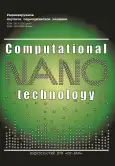Effect of Surface Sensor and External Reference Node on Process Temperature Measurement Accuracy
- Authors: Iskandarov N.1, Bagishov E.1, Isgandarzada E.2
-
Affiliations:
- Azerbaijan State Oil and Industry University
- Azerbaijan Technical University
- Issue: Vol 9, No 1 (2022)
- Pages: 145-153
- Section: Articles
- URL: https://journal-vniispk.ru/2313-223X/article/view/147120
- DOI: https://doi.org/10.33693/2313-223X-2022-9-1-145-153
- ID: 147120
Cite item
Abstract
Full Text
##article.viewOnOriginalSite##About the authors
Nabi Iskandarov
Azerbaijan State Oil and Industry University
Email: nabi.iskandarov@engineer.com
doctoral student Baku, Republic of Azerbaijan
Elmin Bagishov
Azerbaijan State Oil and Industry University
Email: elmin.baghishovs@gmail.com
dissertation student Baku, Republic of Azerbaijan
Elchin Isgandarzada
Azerbaijan Technical University
Email: elchin.isgenderzade@gmail.com
Dr. Sci. (Eng.), Dr. Sci. (Phil.), professor; Head at the Department “Metrology and Standardization” Baku, Republic of Azerbaijan
References
- Isgandarzada E.B., Aslanov Z.Y. Methods and means of measurement and control. Baku, 2017. 290 p.
- Farzana N. Technological measurements and devices. Baku, 1986. 132 p.
- Dimov Y.V. Metrology, standardization and certification: Textbook for universities. 3rd ed. St. Petersburg: Piter, 2010. 245 p.
- Chistoforova N.V., Kolmogorov A.G. Technical measurements and instruments. Part 1. Measurement of heat and power parameters. Tutorial, Angarsk, 2008. 200 p.
- Nilsson H., Sandberg M., Lundstrom H., Stimne H. Experimental methods of ventilation // Add. Build. Res. Energy. 2008. Pp. 159-210.
- Srebrik J., Chen K. Procedure for verification, validation and reporting of CFD analyzes of the internal environment // HVAC&R Res. 2002. Pp. 201-21.
- Hoff T., Blocken B. Field measurements of natural ventilation in a large semi-enclosed stadium: Suitability for CFD testing // Proceedings of the 10th International Conference on Healthy Buildings, Brisbane, Australia, 8-12 July 2012. Vol. 2. Pp. 1346-1351.
- Childs P.R., Greenwood J.R., Long C.A. Overview of temperature measurement // Reverend Sciences. Tool. 2000. No. 71. Pp. 2959-2978.
- International standard IEC 60584-1:2013 “Thermocouples”. Part 1. EMF specifications and tolerances. International Electrochemical Commission. 2013. P. 14.
Supplementary files








